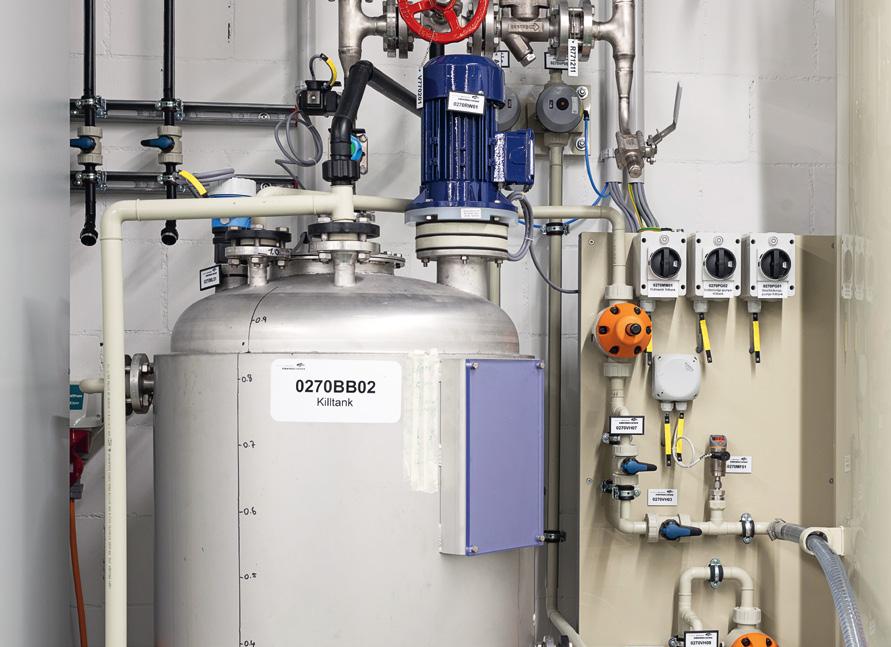
Process Technology Center ( PTC )
Environmental technology plant


Process Technology Center ( PTC )
Environmental technology plant
Industrial and urban wastewater contains substances harmful to the environment, which are removed in stages in wastewater treatment plants using state-of-the-art technology. Current large-scale processes do not always meet the increasingly stringent quality requirements, or do so only partially. In the PTC’s environmental facility, a range of treatment processes can be investigated on a small scale in different combinations, and further developed for large-scale application.
A dedicated pilot treatment plant treats the Muttenz campus wastewater with mechanical pre-treatment, chemical precipitation and biological treatment – up to 1 m3 per hour. In two membrane bioreactors (MBR) running in parallel, experiments can be carried out for further nutrient elimination including co-treatment of industrial wastewater. One focus of the plant is the removal of micropollutants such as pharmaceutical residues and other substances. For this, a spectrum of oxidative as well as nanofiltration and adsorptionbased post-treatment processes is available after the purification stage. Thanks to various membrane systems, the removal of bacteria and other germs can also be investigated.
A fully automated sludge treatment plant enables studies on the anaerobic degradability of industrial wastewater and sludge, as well as on phosphorus recovery. The plant can thus ensure wastewater treatment in compliance with guidelines while minimizing resource consumption and recovering valuable materials, even in material flows with unusual loads.
Thanks to the on-campus environmental engineering plant, students learn how modern wastewater management works, and can operate the plant and control systems themselves. The plant is modular, enabling highly flexible development and testing of new process steps. The plant can also treat external wastewater, hence industry and research partners can investigate the effects of adapted parameters, and develop new efficient and environmentally friendly processes.
• Mechanical pretreatment
• Membrane bioreactors
• Anaerobic sludge stabilization
• Chamber filter press
• Ozone plant
• Nanofiltration plant
• Activated carbon adsorption filter
• Deactivation




Prof.

The FHNW incorporates nine faculties:
– FHNW School of Applied Psychology
– FHNW School of Architecture, Civil Engineering and Geomatics
– FHNW Academy of Art and Design
– FHNW School of Life Sciences
– FHNW Academy of Music
– FHNW School of Education
– FHNW School of Social Work
– FHNW School of Engineering
– FHNW School of Business
FHNW Northwestern Switzerland School of Life Sciences
Hofackerstrasse 30 CH - 4132 Muttenz
T +41 61 228 55 77 info.lifesciences@fhnw.ch www.fhnw.ch/lifesciences

www.fhnw.ch/lifesciences
Photography: Sabine Goldhahn